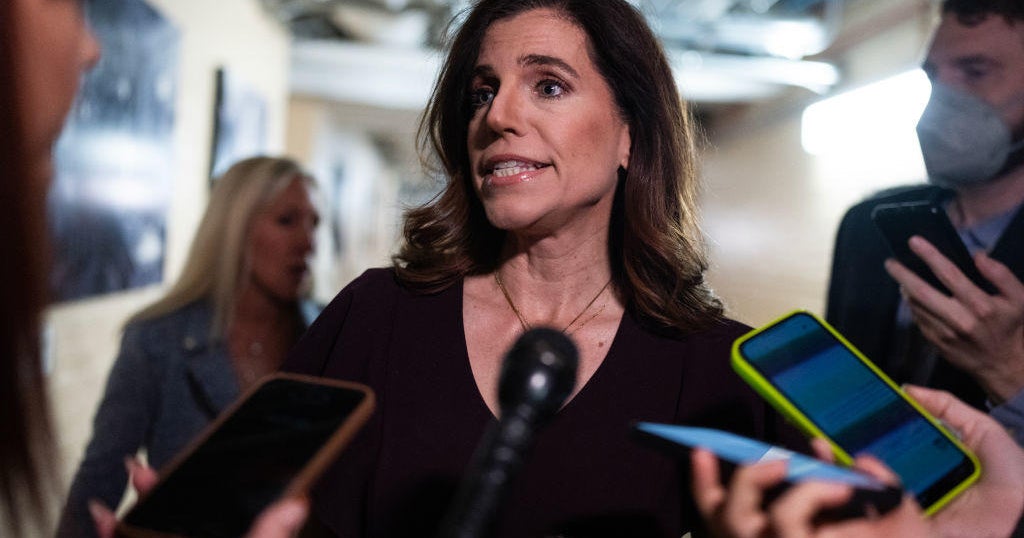Sarah Boone, the woman recently found guilty of murdering her boyfriend in 2020 by suffocating him in a suitcase, will be sentenced in an Orlando courtroom on Monday and faces life in prison.
The Orlando Sentinel spoke with two attorneys about how the sentencing hearing could go and whether Boone has grounds to appeal.
Boone, 47, was quickly convicted on October 25 of manslaughter in the killing of Jorge Torres Jr., 42, on the night of February 23, 2020, at their Winter Park residence. An Orange County jury of five women and one man took about 90 minutes to reach a guilty verdict.
“I think the jury’s verdict and how quickly it came speaks volumes about what the judge thinks about this case,” said South Florida attorney Jessica Mishali, who predicted a stiff sentence for Boone. “[The 90-minute verdict] means that they were all sure that there was no one who needed to be convinced, and that they probably knew what they were going to do even before the trial.”
Boone faces a minimum of 22.5 years in prison and a maximum of life in prison, significantly more than the 15-year plea deal she rejected prior to trial.
Boone initially told police that Torres died as a result of a drunken game of hide-and-seek that went horribly wrong, but her defense team later argued that she was an abused woman suffering from Battered Spouse Syndrome and killed Torres in self-defense.
Orange County Circuit Court Judge Michael Kraynick will hand down Boone’s sentence at the Orange County Courthouse in downtown Orlando.
Mishali, who successfully defended a client charged with first-degree murder for killing her husband using Battered Spouse Syndrome, says she expects a lengthy hearing that could last a full day or more. She estimates Boone will likely receive about 25 to 35 years in prison, but said it is not unusual for someone convicted of second-degree murder to receive a life sentence.
‘There is a lot of discretion from 22 years to life in prison. The defense will want to call all possible witnesses to beg the judge for mercy,” she said.
Boone’s lead attorney, James Owens, did not respond to requests for comment. He told reporters after the verdict that he hoped the defense’s expert witness, forensic psychologist Dr. Julie Harper, would testify in depth about Boone’s mental health issues at sentencing.
Prominent Central Florida attorney Mark NeJame — who has served as a media analyst on some of the region’s most historic criminal cases, including the murder trials of Casey Anthony and George Zimmerman — said judges can consider a convicted murderer’s background to justify a lesser punishment. sentence.
“[If] two people commit murder, but one of them has been abused all his life, [if] they have an addiction problem, which is in contrast to someone who just for fun, with all the privileges of life, goes out and kills someone, just for fun,” he said.
The trial delved deep into Boone’s personal life, showing her often abusive relationship with Torres — who was arrested three times for assault against her — as well as their frequent alcohol use, which was described as central to their lives.
Harper and the prosecution’s expert witness, forensic psychiatrist Dr. Tonia Werner, both testified that Boone suffered from Battered Spouse Syndrome due to persistent abuse and alcohol use disorder, the official medical term for alcoholism.
Kraynick has already ordered a presentation investigation, which will examine Boone’s background – including family history, employment, criminal history and any possible substance abuse.
Boone is divorced and shares custody of her young son with her ex-husband before her arrest in 2020. She was previously an administrative assistant and her only known criminal history is an arrest for assault on Torres during a 2018 incident in which he was also arrested . for battery against her.
Also important are the sentencing guidelines for first-degree murder, which set the minimum and maximum sentences. Mishali says Owens may try to ask Kraynick to sentence Boone to less than the minimum guidelines by arguing there are extenuating circumstances, but that is unlikely to work.
Owens previously told reporters that he thinks Boone will likely appeal and that he will not represent her if she does. He has already filed a motion for a new trial with Kraynick, which is separate from an appeal. The motion puts forward five arguments that can be used when filing an appeal:
-
The court erred when it revoked Boone’s right to a court-appointed attorney (Kraynick revoked Boone’s right to a court-appointed attorney in June because her antagonism and hostility had caused eight previous attorneys to resign).
-
The court erred in denying Owens’ multiple requests to delay the case (the case had been postponed sixteen times prior to Owens’ representation of Boone, and Kraynick refused to delay the case further).
-
The court erred in not granting a new trial after an emotional outburst by Torres’ family in front of the jury (Torres’ mother audibly cried during closing arguments when the prosecutor played a video of Boone challenging Torres as he says he can.’ (he did not inhale the suitcase; Owens therefore unsuccessfully requested a mistrial).
-
The court should have dismissed Werner’s testimony after the prosecutor failed to disclose before trial that she had formed a new opinion (Owens claimed Werner’s testimony went beyond her pretrial statement about whether Boone posed an imminent threat was experiencing at the time of Torres’ murder).
-
The prosecution committed misconduct by essentially presenting a second closing argument rather than a rebuttal argument.
NeJame expects the strongest appeal option to be Werner’s alleged change of heart.
“Of course, with a high probability, she will appeal and appeal,” NeJame said.
Boone’s sentencing hearing begins Monday at 1:30 p.m. at the Orange County Courthouse in Orlando.






